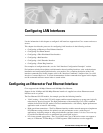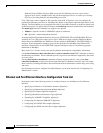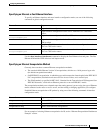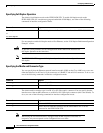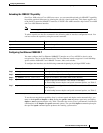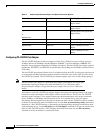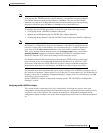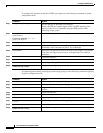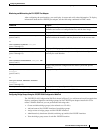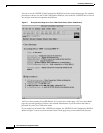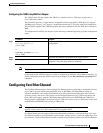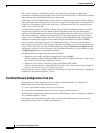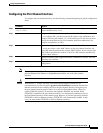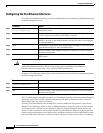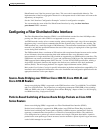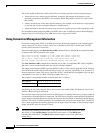
IC-23
Cisco IOS Interface Configuration Guide
Configuring LAN Interfaces
Use the information in this chapter to configure LAN interfaces supported on Cisco routers and access
servers.
This chapter describes the processes for configuring LAN interfaces in the following sections:
• Configuring an Ethernet or Fast Ethernet Interface
• Configuring Fast EtherChannel
• Configuring a Fiber Distributed Data Interface
• Configuring a Hub Interface
• Configuring a LAN Extender Interface
• Configuring a Token Ring Interface
For examples of configuration tasks, see the “LAN Interface Configuration Examples” section.
For hardware technical descriptions and information about installing interfaces, refer to the hardware
installation and configuration publication for your product. For a complete description of the LAN
interface commands used in this chapter, refer to the “Interface Commands” chapter of the Cisco IOS
Interface Command Reference. To locate documentation of other commands that appear in this chapter,
use the command reference master index or search online.
Configuring an Ethernet or Fast Ethernet Interface
Cisco supports both 10-Mbps Ethernet and 100-Mbps Fast Ethernet.
Support for the 10-Mbps and 100-Mbps Ethernet interface is supplied on various Ethernet network
interface cards or systems.
The Fast Ethernet NP-1FE module, for example, provides the following benefits:
• VLAN routing—Virtual LAN (VLAN) support enables network managers to group users logically
rather than by physical location. The high performance of the underlying Cisco 4700, combined
with the feature-rich NP-1FE, makes it an ideal combination for a low-density, higher-performance
application such as inter-VLAN routing.
• High-speed interconnections—The Fast Ethernet interface enables network managers to implement
Fast-Ethernet routing solutions for optimal cost and performance across a wide range of
applications, including campus or enterprise backbones and data centers. It is also a low-cost way
to provide Fast-Ethernet access to traditional low-speed WAN services.
• Local area network aggregation—The Cisco 4500 or the Cisco 4700 series routers can support as
many as 12 Ethernet, 4 Token Ring, or 1 FDDI segment. ISDN interfaces are also supported.



